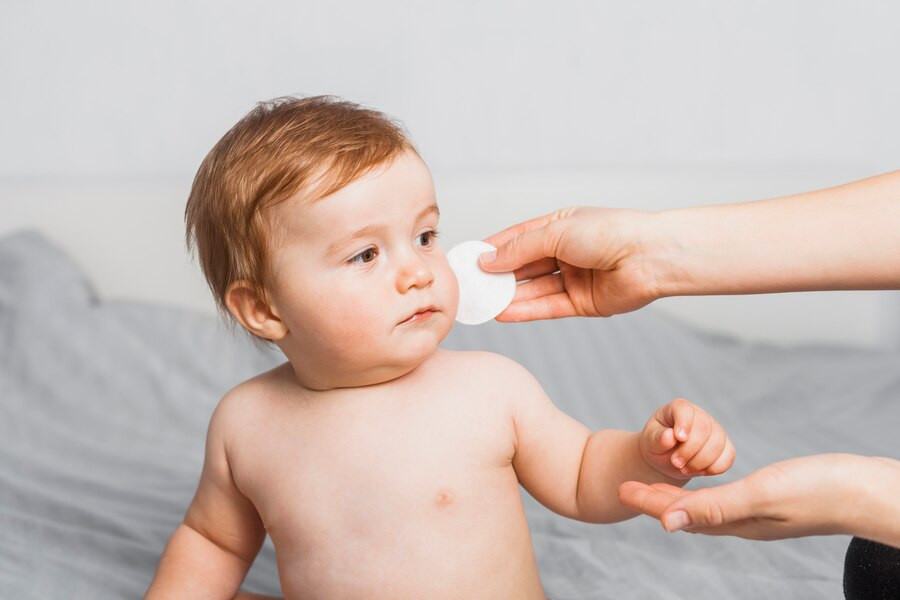Children, particularly those between 2 and 12 years old, are more prone to experiencing motion sickness compared to adults, primarily due to their developing balance system. Motion sickness arises when there is a discrepancy between the sensory input received by the body.
This mismatch occurs when the body senses movement, but the information perceived by the eyes and vestibular system does not align with this motion. Consequently, the body becomes disoriented, leading to symptoms of motion sickness.
One common approach to managing motion sickness is by using anti-motion sickness medication, typically containing dimenhydrinate, an antihistamine. Is it considered safe to administer such medication to children?
What is dimenhydrinate?
Dimenhydrinate is a class of antihistamine drugs that work by preventing body balance problems. This drug is usually contained in anti-motion sickness drugs, which are used to prevent and treat nausea, vomiting, and dizziness caused by motion sickness. Examples include Antimo, Dimenhydrinate, Mantino, Dimetic, Omedrinat, Dramamine, Contramo, Anti-Mab, and Stop-Mun.
To prevent motion sickness, usually the first dose should be taken 30 minutes to 1 hour before traveling. Children under 12 years of age can usually be given dimenhydrinate every 6–8 hours, while children over 12 years of age can take dimenhydrinate every 4–6 hours as needed.
This medicine should not be given to children under 2 years of age carelessly, unless a doctor prescribes it.
Is it safe to give dimenhydrinate to children?
Dimenhydrinate is suitable for children aged 2 and older when necessary. It is available over-the-counter, so a prescription is not required for purchase. However, it is advisable to use any medication, including dimenhydrinate, under the guidance of a doctor. Your doctor can offer guidance on your child's age-appropriate dosage, medical history, potential side effects, and steps to take in the event of adverse reactions.
Side effects of dimenhydrinate in children
There are some side effects that may occur after taking medications containing dimenhydrinate, including:
- Drowsiness
- Headache
- Dizziness
- Blurred vision
- Ringing in the ears
- Dry mouth, nose, or throat
- Problems with coordination
- Fainting
- Nausea
In addition to the above effects, taking this drug can also cause serious side effects, including:
- Faster heartbeat
- Heart palpitations
- Irregular heartbeat
Drugs containing dimenhydrinate should be administered at the recommended dosage. Excessive doses can cause hallucinations, confusion, difficulty distinguishing reality, difficulty speaking, seizures, and coma.
Avoid giving children motion sickness medication (dimenhydrinate) if it is not absolutely necessary. Children under 2 years of age should also be given dimenhydrinate based on their doctor's advice. You can consult your doctor before giving medications containing dimenhydrinate or make use of the consultation features that are available in the Ai Care application by downloading the Ai Care application from the App Store or Play Store.
Looking for more information about pregnancy, breastfeeding, and the health of women and children? Click here!
- dr. Monica Salim
Raising Children (2023). Motion sickness: babies, children and teenagers. Available from: https://raisingchildren.net.au/guides/a-z-health-reference/motion-sickness-babies-children-teenagers
Ashley Brown (2023). Motion Sickness. Available from: https://wwwnc.cdc.gov/travel/yellowbook/2024/air-land-sea/motion-sickness
WebMD (2023). Are motion-sickness medications Safe for Children?. Available from: https://www.webmd.com/children/are-motion-sickness-meds-safe-for-children
dr Apri Haryono Hafid Ai Care (2022). Dimenhydrinate. Available from: https://ai-care.id/dimenhydrinate
Medline Plus (2022). Dimenhydrinate. Available from: https://medlineplus.gov/druginfo/meds/a607046.html
Drugs (2023). Dramamine for Kids: Side Effects. Available from: https://www.drugs.com/sfx/dramamine-for-kids-side-effects.html
WebMD (2020). How to Beat Motion Sickness. Available from: https://www.webmd.com/first-aid/how-to-beat-motion-sickness











